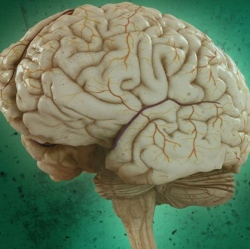
Mental health professionals have long struggled to find more effective treatments for post-traumatic stress disorder. Scientists are currently investigating whether the illegal party drug known as “molly” could help those suffering from the disorder.
As part of that investigation, researchers have now published evidence showing that the combination of psychotherapy and MDMA (methylenedioxymethamphetamine) not only reduces PTSD symptoms but also causes long-lasting changes in key personality traits.
“The scientists in our group (Multidisciplinary Association for Psychedelic Studies, a.k.a. MAPS) have been the first to rigorously study the potential therapeutic effect of a psychedelic agent (MDMA) in the treatment of patients with refractory post-traumatic stress disorder (PTSD) using a double blinded, placebo controlled, open label, cross-over design with long-term follow-up at 12 months (and in one study 45.4 month follow-up),” explained study author Mark T. Wagner, a professor of neurology at the Medical University of South Carolina.
MDMA is an amphetamine-like stimulant with psychedelic properties. In the original study, 20 patients with PTSD who had not responded to conventional treatments received either two sessions of MDMA-assisted psychotherapy or psychotherapy with an inactive placebo.
“The effect size of the treatment has been large (0.9 effect size) and in long-term follow-up we have found that 67.4% of subjects no longer met the DSM criteria for PTSD,” Wagner told PsyPost. “What has been even more remarkable has been that the treatment effect is most evident after a single MDMA-assisted psychotherapy session.”
“The immediacy and magnitude of the therapeutic effect seems to defy current psychological theories of psychotherapeutic change and is instead a therapeutic epiphany life-changing experience similar to what had been described so many years ago by psychologist Abraham Maslow.”
But the researchers wanted to know more about how MDMA-assisted psychotherapy helped to treat PTSD.
“Our most recent study was an investigation to better understand the psychological mechanism of action involved in MDMA-assisted psychotherapy for PTSD,” Wagner explained.
The researchers found that MDMA-assisted psychotherapy resulted in long-lasting changes in two aspects of personality: openness and neuroticism. Both are part of the “Big Five” model of personality traits. These personality changes were associated with reduced PTSD symptoms.
“Inconsistent with prevailing theory that personality structure is a stable throughout life, we found that MDMA-assisted psychotherapy resulted in persistent fundamental alteration in personality with subjects showing evidence of reduced neuroticism and increased openness on the NEO Personality Inventory-Revised (NEO PI-R), which in turn was associated with reduction in PTSD symptomatology as measured by the Clinician Administered Post-Traumatic Stress scale (CAPS) — often leading to a cure,” Wagner told PsyPost.
“Neuroticism has been considered a pervasive tendency to experience negative emotion sufficient to interfere with effective adjustment to life, perhaps making such individuals more vulnerable to PTSD.
Though changes in personality were linked to reductions of PTSD symptoms, the cause and effect behind this association was unclear.
“In our study, whether reduced neuroticism associated with MDMA-assisted psychotherapy was due to PTSD symptom resolution or whether lower CAPS scores were a reflection of reduced neuroticism, was an open question,” Wagner said. “Similarly, those who had the greatest increase in Openness did demonstrate greater decreases in PTSD symptomatology, demonstrating that increased Openness may be the mechanism of therapeutic change.”
“On the NEO PI-R, higher scores on the Openness facet are associated with individuals who tend to seek out new experiences and are open to self-examination. It appeared that this was the mechanism that served to enhance therapeutic change in both behaviors and cognitions for our subjects with treatment-refractory PTSD.
“We speculated that there may be epigenetics at play in using MDMA that caused personality change whereby environmental factors such as profound experiences related to a trauma or cathartic MDMA-induced psychological insight can permanently influence underlying genetically driven personality trait.”
The researchers emphasized that while MDMA may be a necessary catalyst for psychological change, it is not a magic pill. There’s no evidence to suggest that consuming MDMA without psychotherapy improves symptoms, and it could even make symptoms worse.
“It is our feeling that the MDMA experience is necessary, but not sufficient, and only safe in a controlled psychotherapeutic setting. We cautioned that in a non-therapeutic setting, the reverse effect could occur,” Wagner told PsyPost.
“Based on our phase 2 scientific studies, in late 2016 the FDA has approved a phase 3 clinical trial of MDMA-assisted psychotherapy for at least 230 subjects. This phase 3 trial may lead to MDMA becoming a prescription medication in the US for treating certain forms of psychopathology.”
The study, “Therapeutic effect of increased openness: Investigating mechanism of action in MDMA-assisted psychotherapy“, was also co-authored by Michael C. Mithoefer, Ann T. Mithoefer, Rebecca K. MacAulay, Lisa Jerome, Berra Yazar-Klosinski and Rick Doblin.
